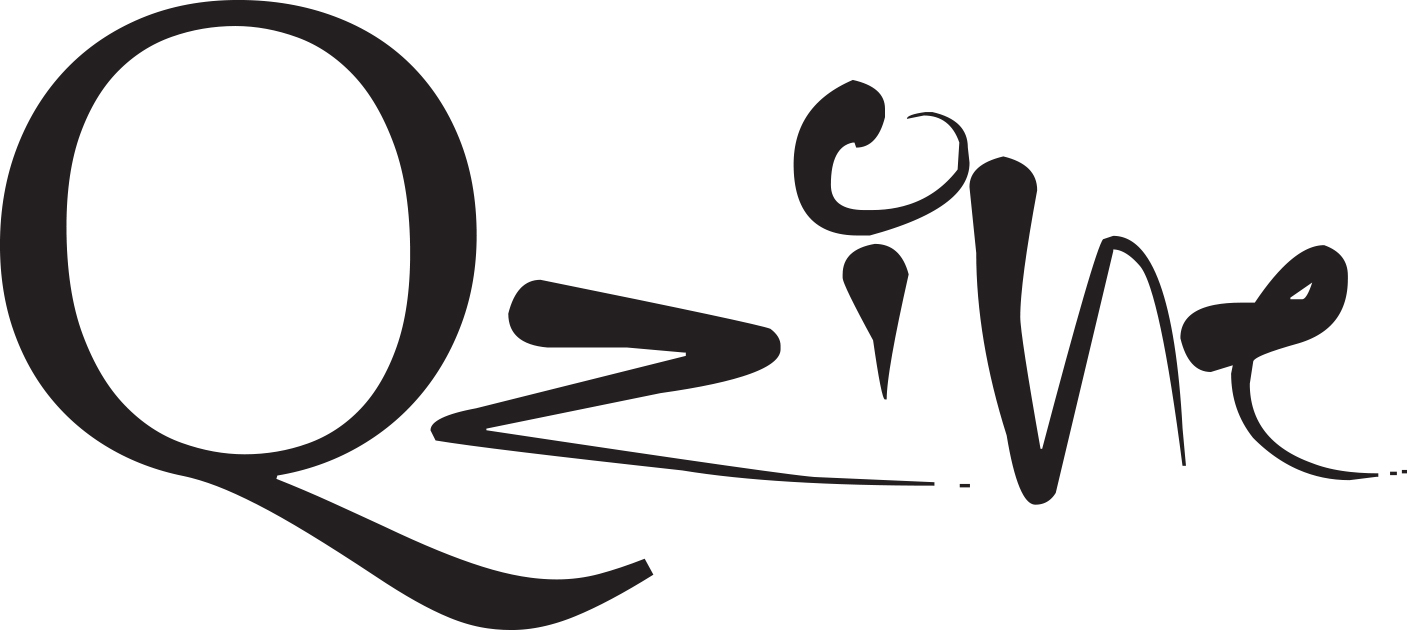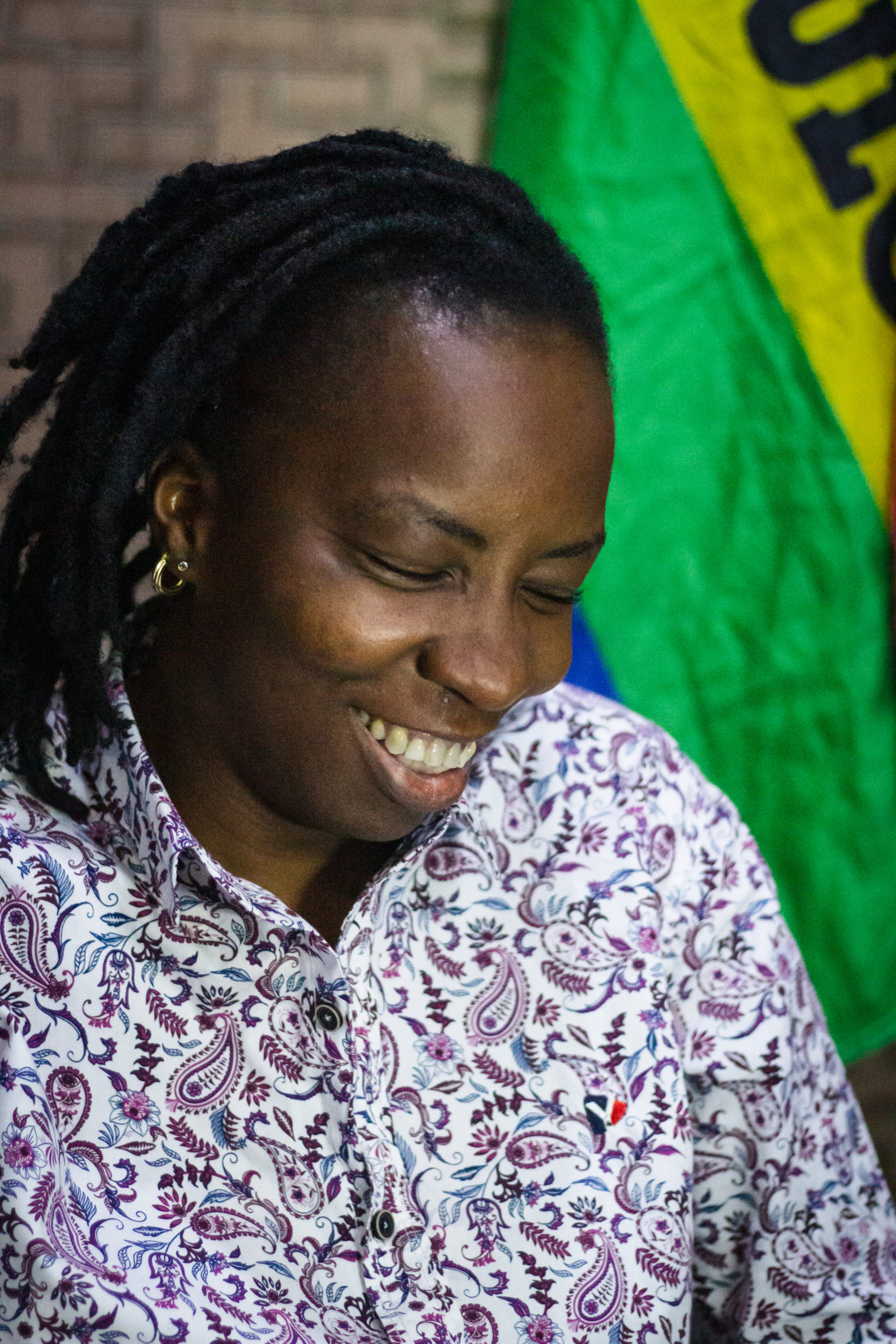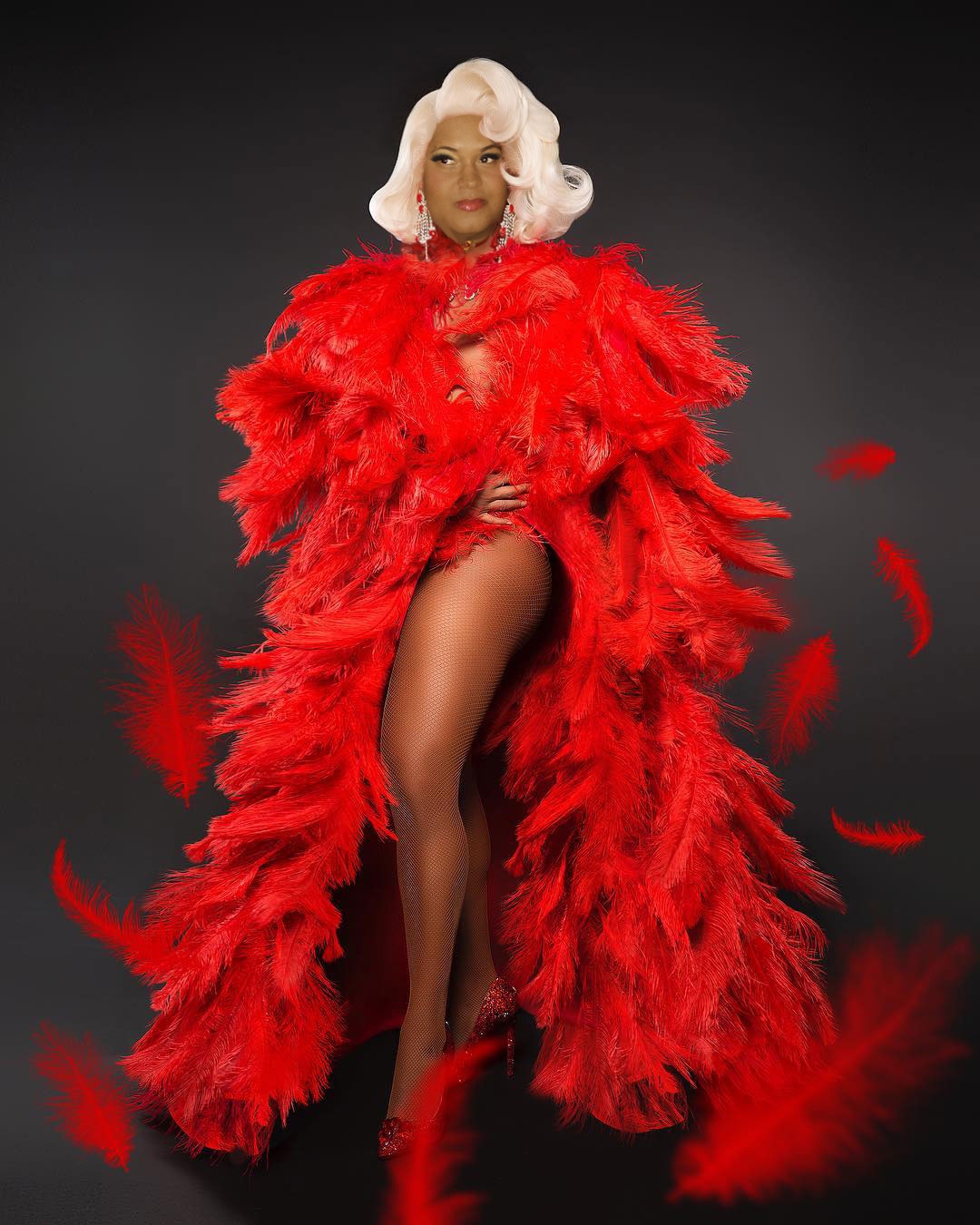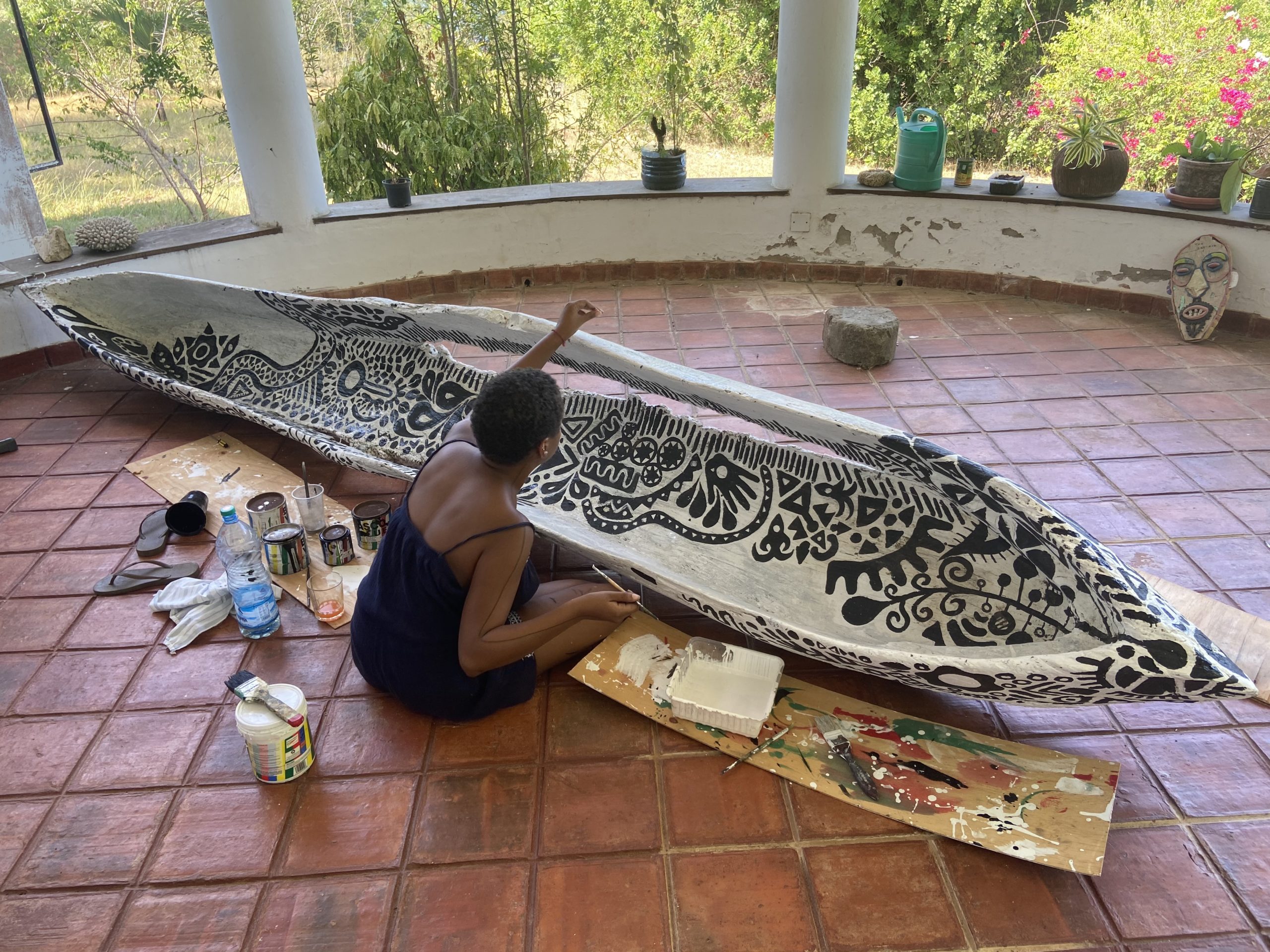Knowing Our History To Redefine Family
A conversation with Julia Makwala
Interview and Photos by Ruth Lu
Advocating for the rights of LBTQ people, especially in Africa, is a daunting task. Yet, activism can also open the door to a larger community that can become a source of acceptance, safety, comfort and support. For this issue, Q-zine met with Julia Makwala, a dedicated LBTQ activist from the Democratic Republic of Congo who shared with us her activist journey and her thoughts on family.
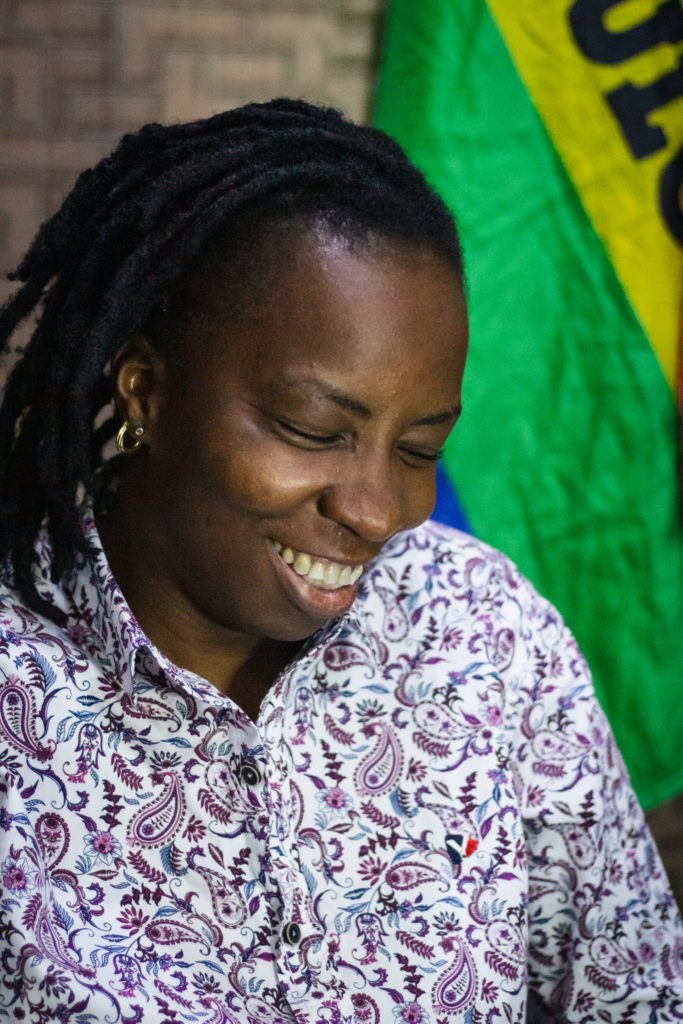
Can you introduce yourself to our readers?
My name is Julia Makwala, I am an Afro-feminist activist and I serve as the national Executive Secretary of Oasis DRC, a feminist LBTQ association based in Kinshasa, with branches in other provinces.
How did you start at Oasis?
It all started from questions I had about the situation of LBTQ women. Specifically, I wanted to understand why we were not taken into account in our country, why we were unable to benefit from certain health services, especially in terms of sexual and reproductive health, including HIV/AIDS. In DRC, the issue of HIV is a gateway for discourse on homosexuality. In HIV policies, there is a general call for no one to be left out, but the reality is that sexual minority women are. There are sexual and reproductive health programmes in which lesbians are not specifically included. For instance, in order to access certain HIV services, sexual minority women are forced to pose as sex workers because sex workers are recognised as a key population in the fight against HIV/AIDS, alongside men who have sex with men, drug users, and more recently, after years of advocacy and lobbying, transgender women.
But when it comes to lesbians, bisexual women and trans men, there is still a certain lack of diligence. Initially, this neglect was explained by the misperception that sex between women was not a transmission channel for sexually transmitted diseases. Simply put, our sexual orientation was not taken seriously, and the health risks were overlooked. Of course, we know that patriarchy plays a very important role in the invisibilisation of LBQ women, even within the queer community. In DRC, when we talk about homosexuality, we think more of men who have sex with men than of women. So, it’s all these questions that led me, alongside some friends, to set up an association for sexual minority women and feminists. And that’s how Oasis RD Congo was born as a feminist LBTQ association.
How would you describe your work and what have you learned about yourself through your involvement with Oasis or the wider LGBTQ community?
I would describe my work as striving for the emergence of recreational spaces, spaces for free speech, for socialization, free from religious and cultural restrictions. I also work to deconstruct prejudice and combat the exclusion, discrimination and stigmatization of women in general, and sexual minority women in particular. Through my activism, I have learned that despite our different perspectives and unique experiences as women, we all share the same vision: to defend and promote the rights that are most legitimate to us so that we can live in dignity.
As you know, this Q-zine issue is about family, so we are curious to know what this theme means to you.
For me, a family is a safe space that guarantees that one will be accepted with their differences. This acceptance is the foundation of social cohesion and is the starting point of this relationship. When I think of my family, I think of my father, my mother, my siblings, and the community I was born into. Because of my open-mindedness and my involvement in the LGBTQ community, I would extend this notion of family to any community of individuals who love and support each other. I strongly believe that family should be based on principles of care, kindness, solidarity, and comfort. These, I believe, is what makes a family, because one can be born to individuals who do not embody these principles.
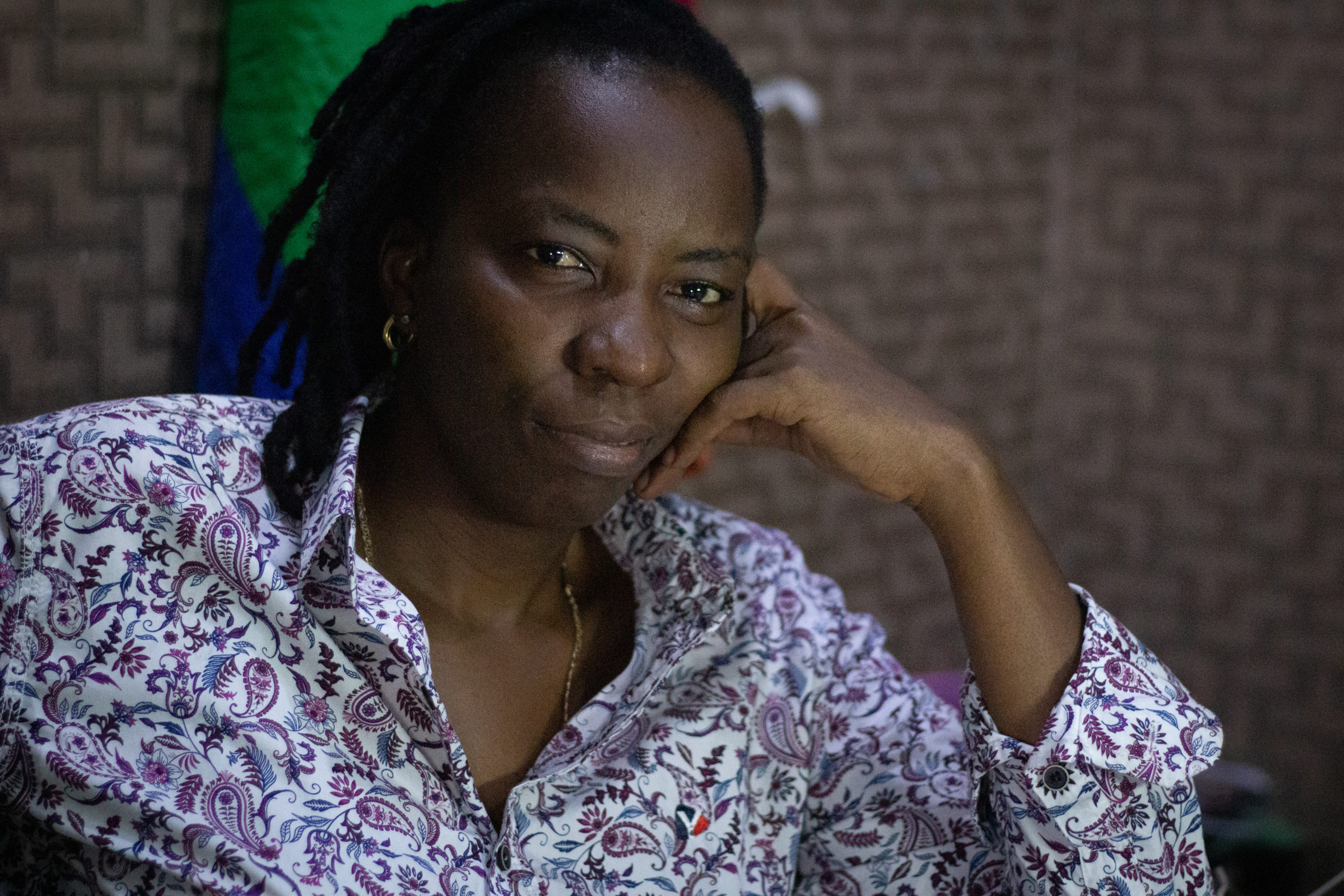
It’s interesting that you started defining your family as the people you were born to. You alluded to it a little bit, but besides your biological family, who do you consider family?
The people I consider family are people with whom I share similar values, people who strive for peaceful co-existence and are open to difference and diversity. It’s true that the concept of family has evolved over time, but for me, family is a safe, reassuring, socializing space that also provides support. I believe that family is first and foremost about values, bonds, unity, and principles for which one is ready to fight.
For a long time, the concept of family has wrongly been limited to the portrait of the father, mother, children, etc. How do you think we can change this perception of family, especially for those of us who live in societies that do not show examples of families outside the “norms”?
Well, when you are outside the norms, you build a family outside the norms! (laughs) We only give what we have, right? Luckily, things are changing. We are no longer in the Stone Age (laughs). I often say that we need to ensure the dissemination of legal instruments, as well as historical and social knowledge. Take DRC for instance! The country has ratified several legal agreements, yet the population does not always know about the provisions of these agreements.
For a long time, the norm was a father, a mother, etc. This is true, but things are changing, people are beginning to see things differently. We used to say “this is our culture”. But I often wonder what our culture is. When you ask people to explain the culture in question, they are unable to do so. And when you explore that very culture in more depth, you realize that all of this existed [in reference to homosexual practices]. If you do some research, you can learn about the Bitesha, in the Kasai. There is also another tribe in the Central Kongo province, known as the Woyos, where when a girl reached puberty, she was interned with the older women of the tribe to learn how to live with a man in all respects, sex included. These women were in charge of the girls’ sexual education and had to show them how to do it. So, they had to have sex with each other to show the girls. Of course, sexual intercourse does not equate sexual orientation.
But what would you call what they were doing? Homosexual intercourse? Maybe? I don’t know. All of this to say that it’s often ignorance that makes people say certain things. I am convinced that to change mentalities, it is important to conduct research, to produce knowledge on our experiences, because if we don’t, no one will do it for us.
Any final remarks for our readers?
I would like to take this opportunity to pay a heartfelt tribute to Nancy Bitsoki who was an LBTQ Afro-feminist activist and my partner. She passed away recently but I will always consider her a member of my family. And to the readers, I would simply remind them that a family should be a safe space where people are accepted with their differences.
